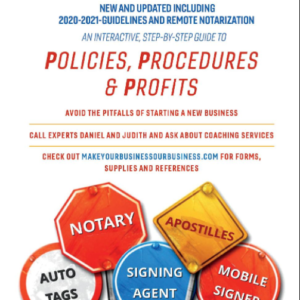
As a notary entrepreneur, you encounter various clients and situations daily. While most interactions go smoothly, there are times when tensions can rise. Whether it’s due to misunderstandings, legal complexities, or emotional distress, knowing how to de-escalate these situations is crucial. Not only does it help maintain professionalism, but it also ensures a positive experience for all parties involved. Here’s how you can effectively handle and de-escalate challenging situations in your notary practice.
1. Stay Calm and Composed
The first and most important step in de-escalating any situation is to remain calm. Your demeanor can greatly influence the client’s response. Even if the other person is upset, maintaining a steady and composed attitude can help diffuse their emotions. Take deep breaths, speak slowly, and avoid matching their level of intensity.
2. Listen Actively
Often, clients just want to feel heard. Practice active listening by giving them your full attention, nodding occasionally, and summarizing their concerns to show you understand. This not only validates their feelings but also helps clarify the issue at hand. Active listening can be a powerful tool in calming someone down and building rapport.
3. Empathize and Acknowledge Feelings
Empathy goes a long way in de-escalating conflicts. Acknowledge the client’s feelings by saying things like, “I understand why you might feel this way,” or “I can see how that situation could be frustrating.” This shows that you are not just dismissing their concerns but are genuinely trying to understand their perspective.
4. Clarify and Explain
Misunderstandings often lead to conflicts. Make sure to clarify any misconceptions and provide clear explanations about your role and the notarization process. Use simple language and avoid jargon that might confuse or alienate the client. For instance, if a client is upset about a document’s requirements, calmly explain the legal necessity and your obligation to follow the rules.
5. Set Boundaries and Stay Professional
While it’s important to be empathetic, you also need to set boundaries. If a client becomes aggressive or inappropriate, assertively but calmly set limits. For example, you might say, “I understand you’re upset, but I can’t help if you raise your voice.” Maintaining professionalism is key to controlling the situation and ensuring a safe environment.
6. Offer Solutions or Alternatives
Once the issue is clear, focus on finding a solution. Offer possible alternatives or next steps to resolve the problem. For example, if a document is not ready for notarization, suggest what needs to be done or who to contact for further assistance. Providing a path forward can help alleviate anxiety and frustration.
7. Know When to Step Back
In some cases, despite your best efforts, the situation may continue to escalate. If this happens, it’s important to know when to step back. Offer to reschedule the appointment or involve another party, such as a supervisor or legal advisor, if necessary. Your safety and well-being, as well as the integrity of your practice, are paramount.
8. Reflect and Learn
After the situation has been resolved, take time to reflect on what happened and how it was handled. Consider what worked well and what could be improved. Continuous learning and self-awareness are key components of professional development and will help you handle future situations even more effectively.
Conclusion
De-escalating tense situations is an essential skill for notary entrepreneurs. By staying calm, listening actively, showing empathy, and offering solutions, you can turn potentially negative interactions into positive experiences. Remember, the way you handle difficult situations not only reflects on your professionalism but also enhances your reputation and client relationships. With practice and patience, you can navigate these challenges with confidence and poise.
Daniel C. Lewis resides in Carmel, IN. He was named in 2010 Notary of the Year by the National Notary Association. He was also named in the same year an Honorary Secretary of State by the Indiana Secretary of State. Daniel is currently serving as the Executive Director of the Lewis Notary & Training Services Inc. Daniel is an entrepreneur, writer, video editor, and Keynote Speaker.
Other post by this author….
- Overcoming Distractions During a Notary Assignment: 7 Proven Strategies for Notary Success
- 5 Must-Have AI Tools for Notary Entrepreneurs Should Use Today
- How to obtain an Indiana Title Producers License for Notaries
- What to do in Quarter II for Notary Entrepreneurs
- Do’s and Don’ts of Marketing for Notary Entrepreneurs



